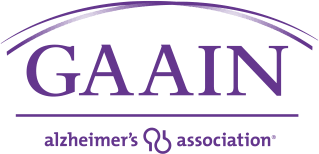Additional data sets
Global Alzheimer’s Association Interactive Network
The Global Alzheimer’s Association Interactive Network (GAAIN) is a big-data community for cohort discovery and data exploration that promotes data sharing among a federated, global network of data partners who are studying Alzheimer’s disease and other dementias. It is a collaborative project that provides researchers around the world with access to clinical, genetic, and imaging data on Alzheimer’s disease from hundreds of thousands of subject participants through compelling and intuitive graphical user interfaces. Led by Arthur Toga, PhD, Director of the Laboratory of Neuro Imaging (LONI) at the University of Southern California, GAAIN’s goal is to transform the way researchers work together to answer fundamental questions related to understanding the causes, diagnosis, treatment, and prevention of Alzheimer’s disease.

The Rush Alzheimer's Disease Center (RADC) Research Resource Sharing Hub
The RADC has several prospective cohort studies that generate an enormous variety of unique data and biospecimens available for sharing. The RADC Research Resource Sharing Hub was designed to help non-RADC investigators navigate these complex data and biospecimens and to assist in identifying data and biospecimens that can be used to support their projects. These data are already widely shared with other NIA and ADRC projects, e.g., ADGC, ADSP, NIA-LOAD, CHARGE, IGAP. RADC also offers Information on NACC UDS compatible data items collected by cohort studies.

Alzheimer’s Disease Cooperative Study
Data sharing is integral to the ADRCS's mission to develop and execute innovative clinical trials focused on interventions that may prevent, delay, or treat the expression of Alzheimer's disease and related dementias. The ADRCS is committed to sharing resources and tools including data, biospecimens, trial designs, outcome and analysis measures. The ADRCS follows NIH guidelines for data sharing, making its legacy data broadly available and accessible to the research community at large for the purpose of furthering research. The ADRCS currently has data sets from over 20 of its clinical trials available to investigators.


